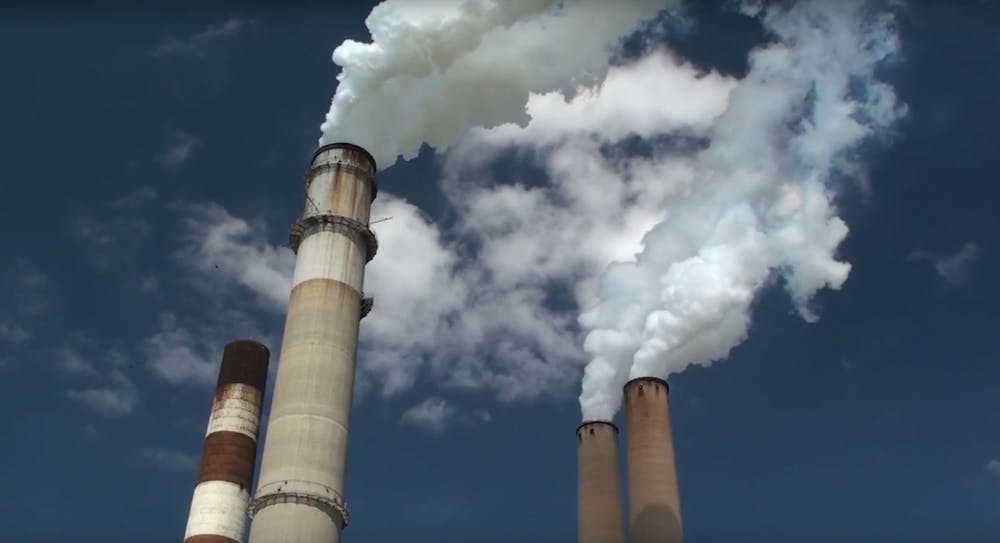
Courtesy of Creative Commons
The use and manufacture of fossil fuels is often criticized as irresponsible and destructive — but rarely is it compared to genocide.
Student activist group Fossil Free Penn hosted a discussion focused on the validity of this harrowing comparison Thursday, following the Trustee's September decision not to divest from fossil fuels. In a letter written to Fossil Free Penn on the day of the decision, Chairman of the Trustees David L. Cohen said the activities of fossil fuel companies do not constitute a "moral evil" that is "on par with apartheid or genocide."
The night’s featured speakers were Penn German professor Simon Richter and physical chemistry Ph.D. and Holocaust survivor, Micha Tomkiewicz.
An active promoter of climate change awareness and researcher of alternative energy, Tomkiewicz said the comparison between fossil fuel and genocide is not entirely apt. He said making such a comparison would require proof of mal-intent, which he said cannot be found in either fossil fuel producers or consumers.
Further, he warned that the exaggerated references to events like the Holocaust weaken the anti-fossil fuel campaign.
"Using this comparison usually means you lost the argument," Tomkiewicz said.
Tomkiewicz explained that if fossil fuel consumption continues at its current rate, it could eventually meet the definition of a moral evil. According to his analysis, current greenhouse gas emissions threaten the human race with profound disaster and could mean the end for different peoples and cultures around the globe.
Continuing to neglect the issue of climate change would qualify as implicit intent, tantamount to "self-inflicted genocide," he said.
“The fact that everybody knows about it, yet still chooses politically to continue, and not care what will happen sixty to seventy years from now, to me, constitutes intent,” Tomkiewicz said. “So for all practical purposes, not right now [fossil fuel use] constitutes a genocide, but [it will] if we continue with business as usual.”
Richter agreed with Tomkiewicz and questioned whether Penn's administration is doing enough to fight climate change.
Though he briefly commended the University for its investment in renewable energy, his critiques far outweighed his praise. He attacked the Board of Trustees’ September decision to not divest from the fossil fuel industry. He said setting such high standards for divestment served as an excuse, allowing the University to avoid an inconvenience.
“It’s a shield they can use to defend their inactivity and decision not to pursue action," Richter said. "It’s not climate change denial, but it's climate urgency denial.”
Indeed, Richter doubted whether any cause, no matter how significant, could actually convince the University to divest. He alleged that the requirements laid out in the Board’s September letter were so unattainable, it would preclude a withdrawal from even the most destructive of investments.
Penn has divested in the past. In the 1980s,Penn divested from companies that did business in South Africa, and in 2006, divested from oil companies in Sudan in reaction to the genocide in Darfur. Most recently, Penn decided not to make future investments in HEI Hotels and Resorts after it was accused of unlawful anti-organizing practices and unfair working conditions.
In 2014, the University declined to divest from the tobacco industry, despite overwhelming support from the Penn community.
Richter urged administrators and students to show “more moral leadership,” in a crusade against climate change. He noted that as the alma mater of President-elect and 1968 Wharton graduate Donald Trump, Penn enjoys a unique political influence.
“This is a megaphone that chance has handed to us," he said. "We should call on the University to make strategic use of this mega-phone. Divestment, under these new circumstances, is all the more urgent.”
The Daily Pennsylvanian is an independent, student-run newspaper. Please consider making a donation to support the coverage that shapes the University. Your generosity ensures a future of strong journalism at Penn.
Donate



